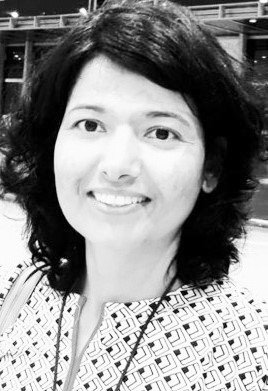Reshma Parveen-Musofer
In literature agency is defined as a personal capacity. It is the feeling of gaining control over ones action. When a person has a good understanding, feels confident about something and is able to make decisions is an agentic person. However agency is exercised and enacted in a context where other factors like the structure, the rules, other people and the norms of the context affect one’s ability to take action or make a decision.
Human agency, according to some leading philosophers, is a collective, historical dynamic, rather than a function arising out of individual behaviour.
In the research field people are generally referred to as ‘actors’ or ‘agents’. In my opinion, actors are those who follow rules and are good followers. In showbiz context ‘actors’ are generally those who ‘act’ in a TV drama or film or theatre. These people act on a script written by someone else, usually the scriptwriter. So the ‘actors’ act upon it. In research, particularly in educational research, actors are referred to those people (school management, or teachers) who enact an educational policy or curriculum. So actors, generally, follow rules and implement policies.
Agents on the contrary are those people who have the potential to act on their own. They are called ‘agentic’. They go beyond the rules and norms and act using their personal capacity. However, this personal capacity is not free will. There are societal structures which can prevent agency. For example, teachers are generally restricted to teaching only the curriculum. The curriculum is the structure that restricts agency. Classroom norms can also limit the agency. For instance if students ask questions in the classroom, they are agentic. However, if the teacher discourages their questioning, their agentic capacity is reduced.
Society works more or less the same way. There are certain actors who follow the rules and norms in a society. They are generally considered as ‘good people’. They are followers. Whereas there are other actors in a society who exercise their agency and become agentic. They are not encouraged. Agentic actions require something beyond rules. Agentic actions require confidence and courage. That does not necessarily mean breaking the rules or not respecting the rules. It simply means doing something beyond the rules or norms and breaking the status quo or decadence.
While we understand that a society’s rules and norms are to protect everyone from harming each other or even themselves. There are something within the norms that are actually harmful to some segments of society. For instance, if a woman is tortured physically or emotionally, the society norms for her are to keep quiet. In this case, the woman suffers and at times harms herself. Then the society norm becomes questionable. It is the power and certain social and economic classes, or group which develops these norms and rules for their interest.
So, a woman or an individual who belongs to a marginalised or oppressed segment of society feels helplessness ultimately suffers. On the contrary, if a woman (or minor) raises her voice about discrimination, or her abuse and cares less about the social norms, is called agentic.
There is a misperception of an agent in our society which needs to be addressed. We generally think that agents are people who work for other people like external agencies. This is a very wrong perception and should be addressed. If a person is working for an external organization, they should be ‘actors’ not ‘agents’. Agents and agentic actions are positive and useful for a society’s progress. So we need to change this definition of agents and understanding it as ‘someone’s capacity to act’. Someone has to be brave enough to decide and take action.
Playing agentic role is not always easy. We should also be careful to exercise our agentic role. Agency is creativity. It is critical thinking. It is doing something that is progressive. But we need to play it with responsibility. While exercising our agentic role we should be careful that we do not harm others. We need to be ethical.
![]() Reshma Parveen-Musofer is a teacher by profession, she did her PhD from the University of Queensland and currently working as a research fellow in STEM education for schools at the same university. She Twitts@ReshPar
Reshma Parveen-Musofer is a teacher by profession, she did her PhD from the University of Queensland and currently working as a research fellow in STEM education for schools at the same university. She Twitts@ReshPar

The High Asia Herald is a member of High Asia Media Group — a window to High Asia and Central Asia

